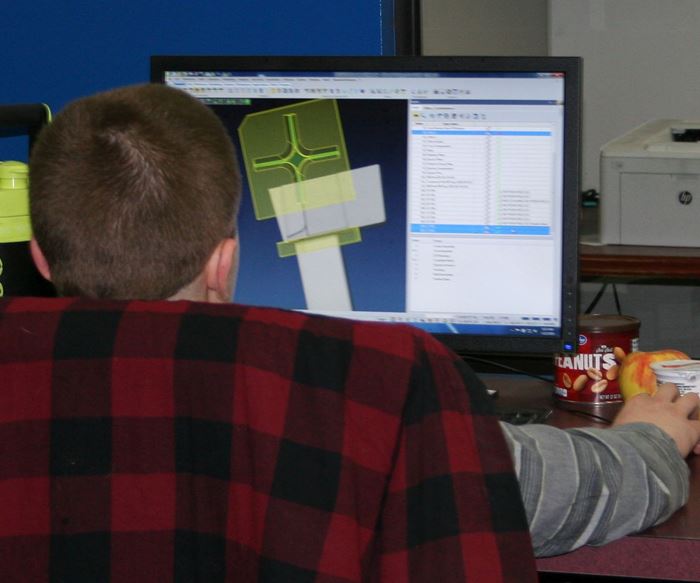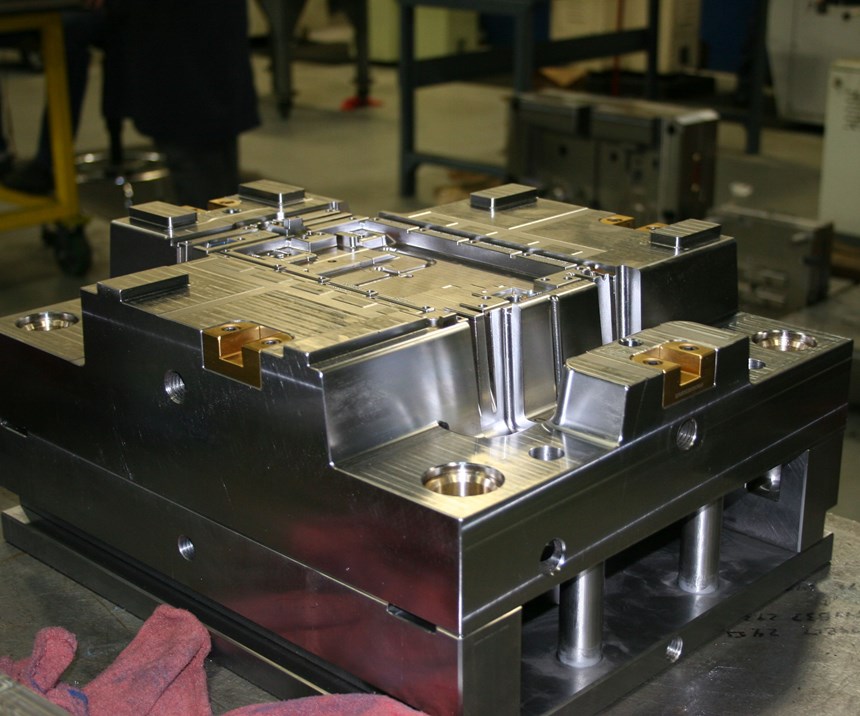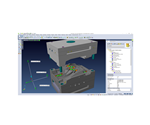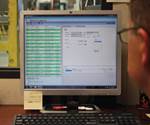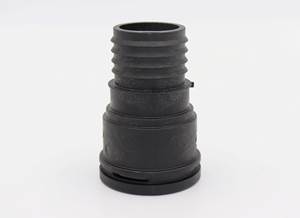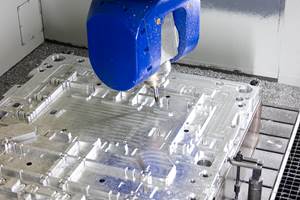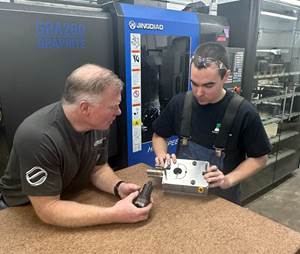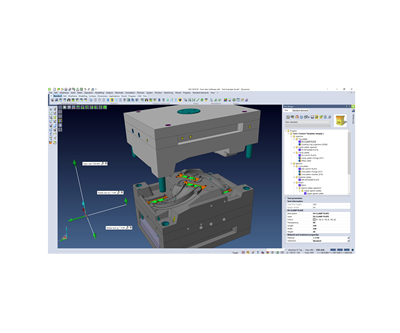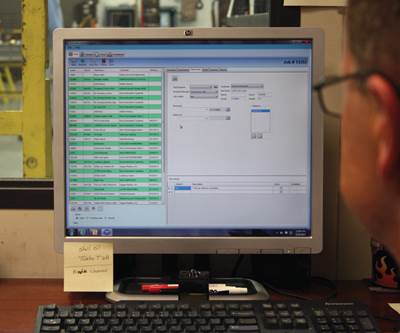When a company’s dictum is “Where quality is our objective, dedication is our resource and success is our result,” it is no wonder that, for more than 30 years, Innovative Mold Inc. (IMI) in Washington Township, Michigan, has strived to meet and exceed the needs of its customers through a variety of approaches to moldmaking, like taking the job from concept to reality, devoting upfront engineering for their customers’ products, which entails reviewing customer data, creating a feasibility study, learning what does not work with the data and coming up with suggestions for changing the part to make it work. The company also specializes in two-shot and rotational molds. In addition, IMI recently diversified its services to include molding parts for production, tailoring their services to fit the needs of customers in the automotive, consumer and industrial products markets.
While this customer-centered approach has allowed IMI to remain a viable, reputable supply partner in today’s competitive global marketplace, the company knew that to remain competitive, it needed to reevaluate the shop’s software needs to accommodate its desire to also build larger (up to 700-ton where before limit was 500-ton), more complex molds including multicavity, two-shot rotational and rotating core molds. The team discovered that TST Tooling Software Technology, LLC (Clarkston, Michigan), master resellers of Hexagon Manufacturing Solutions VISI CAD/CAM, which offers fully integrated surface and solid modeling, 3D tool design, plastic flow analysis and comprehensive multi-axis milling strategies, was the right solution.
Clarifying Communications Across Teams
IMI worked with several different types of modeling, machining and manufacturing software both on the shop floor and in its engineering department. Some of it consisted of two- to five-axis CNC programming on the shop floor, 3D design software, analysis software and fully integrated wireframe, surface and solid-modeling software in the engineering department. According to Ben Mogill, IMI’s engineering and sales manager, they continually ran into design issues, as data wasn’t being saved to one master file. “There was a lot of back and forth from the floor to our engineering department,” he says.
IMI was able to solve the communication breakdown between the CAD department and the shop floor.
As a result, a lot of additional costs and time were incurred whenever there were changes made in the design data mid-stream on a project, which adversely affected both timing and scheduling, he says. “For example, one of our moldmakers determined that an ejector pin needed to be added in an area of a mold for additional part ejection,” Mogill says. “In order to do this, a water line had to be moved 0.200 inch for a good steel condition. This change was done on a different software on the floor. It then required an update on the master file, and if that did not get completed, we would have a design that does not match the actual tool steel. Down the road, this could cause issues resulting in cost and timing impacts.” Using VISI Mold, a module within VISI CAD/CAM, and VISI Viewer software on all five computers used on the shop floor, IMI was able to solve the communication breakdown between the CAD department and the shop floor. It enabled the use of the same file from design through manufacturing, with no need to translate data from one software to another. All changes or additions to a design now represent exactly what processes are put into the steel via the master file. Using the software option, VISI Viewer makes it possible for everyone to access the master file, including the engineering team, to stay involved and up to date. Everyone is working in the same system with the same catalog.
There was also a push to get away from using prints and, Mogill says, the benefits have been huge. “It empowers the floor workers to get and stay involved with design iterations as they occur.” For example, IMI reduced creating 2D prints for the shop floor, which helped with design obsolescence. “Before, 2D prints were created for measurement and review on the shop floor, but 3D data often gets updated, and prints would need to be tracked down or recreated to keep everyone on the same page,” he says. “Again, VISI Viewer is used to view designs on the shop floor. This gives our mold builders real-time updates and keeps the current 3D designs fluid.” He adds that the only reason they still generate some 2D prints is to have them handy should it be necessary to outsource any work to vendors who need them.
In addition, IMI noticed how much extra time they were spending fixing data using the other surface modeling software (to make it a solid model), but after implementing VISI, the time became much shorter and the process a lot faster. “If I had to put a percentage on it, I would say that VISI is 20% faster,” he says.
Simplifying Design Complexities
Working on complex data was also an issue, according to Mogill, as IMI’s previous system was too cumbersome to handle big molds with heavy design. “Within the old software, the tree assembly manager, while effective for tracking the product design of a single part, had limitations with many multiple components,” he says. “For example, the tree assembly manager made it more difficult to save files and making changes to designs took upwards of 15 to 20 minutes of PC computing time, leaving the designer sitting and not clicking. Even worse, files would lock up completely, causing us to lose the structure and hours of work completed.”
The software is based on industry-specific automation which helps to guide the user through the mold development process.
When TST Tooling Software stepped in with VISI CAD/CAM, Mogill knew they had a viable solution. “VISI Mold is a powerful tool for complex mold building because all of the tools and functions needed for designing molds are already built into it. There are no third-party add-ons required,” he says. “The software is based on industry-specific automation which helps to guide the user through the mold development process.” For example, if a designer wishes to insert an ejector pin into the mold design, the software has built-in parametrics to ensure the correct pin is inserted. If the surface data changes or the pin is moved, the software automatically updates the pin’s geometry to correctly match the new specifications. In addition, the BOM is automatically updated within the program, ensuring the correct pin is in stock.
“VISI Mold offers key tools for each stage of designing a mold,” William Poulos of TST Software, explains. “Analysis tools help to define draft, compare, split part functions, create parting lines and validate data. Surfacing tools help to generate every type of surface needed to create an exceptional design. Mold tools create custom mold bases with components, water lines, mold locks, ejector pin labeling and mold component tools enable designers to add any type of fasteners, ejector pins, guide pins, bushings, lifters, slides and so on. Visi prompts the user on what components to pick and the direction on the axis to install.”
VISI streamlines data, puts everyone on the same system and increases design speed.
Mogill says on-site one on one training with VISI was made easy with the help and guidance from TST Tooling Software and their support team. “TST’s Tech Department hires people from the trade to teach our customers,” Poulos says. “For a moldmaker, we would provide a person that built and designed molds to conduct the training. For a machinist, we would provide a person that ran machines and programmed for a living. Therefore, it is easy to teach someone, because the trainers have the knowledge and experience.”
With assistance from TST’s help desk support crew, questions were answered fully and in a timely manner, so IMI was running strong with the software within a couple of weeks. “Another benefit that made training on VISI so much easier than with the previous system is that scanned data in STL file format can be easily imported into the VISI software,” Mogill says. The software alone noticeably increased the efficiency of the shop by 20% overall, he adds. “VISI streamlines data, puts everyone on the same system and increases design speed.”
For More Information
TST Tooling Software Technology LLC / 248-922-9293 / williamp@tst-software.com / tst-software.com
Innovative Mold Inc. / 586-752-2996 / sales@innovativemoldinc.com / innovativemoldinc.com
Related Content
How to Harness 3D Scanning for Mold Tool Repairs
3D scanning supports the repair of molds with no history, drawings or design files.
Read MoreTrue Five-Axis Machine Yields More Throughput, Greater Productivity
CDM Tool & Mfg. Co. LLC increased shop capacity thanks to a versatile high-speed/high-accuracy five-axis Fooke mill capable of cutting very large workpieces quickly and accurately with fewer setups.
Read MoreFive-Axis Graphite Mill With Automation Debottlenecks Electrode Machining
Five-axis electrode cutting enabled Preferred Tool to EDM complex internal screw geometry on an insert that otherwise would have had to be outsourced.
Read MoreHow to Clean and Maintain Molds With Intricate Conformal Cooling Channels
A water-based, eco-friendly plastic mold cleaning system helps Rankine-Hinman Manufacturing restore flow rates and avoid big-ticket failures on complex and costly molds.
Read MoreRead Next
Job Tracking Software Streamlines Shopfloor Processes
TST Tooling is demonstrating how its TSTracker and Estimator job tracking software streamlines the shop floor process at Amerimold 2018.
Read MoreEnterprise Resource Planning Software Simplifies Job Tracking
TST Tooling Software Technology LLC, distributor of Vero Software’s Visi products, helped Viking Tool develop an effective job-shop tracking solution.
Read MoreHow to Use Continuing Education to Remain Competitive in Moldmaking
Continued training helps moldmakers make tooling decisions and properly use the latest cutting tool to efficiently machine high-quality molds.
Read More

